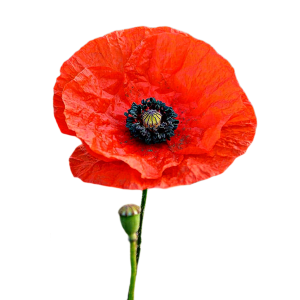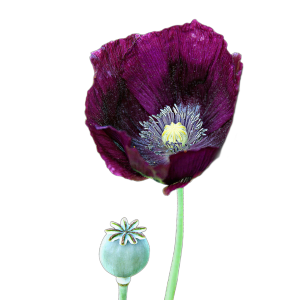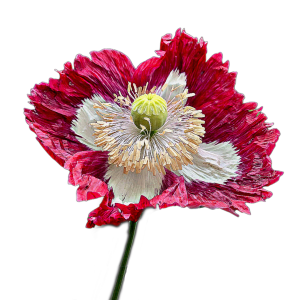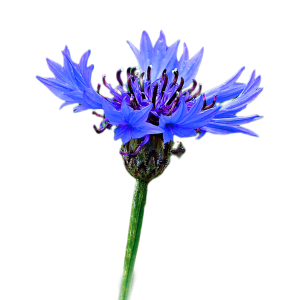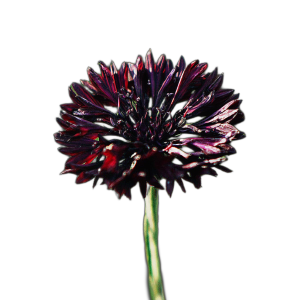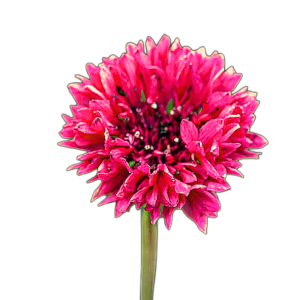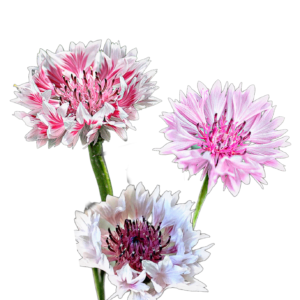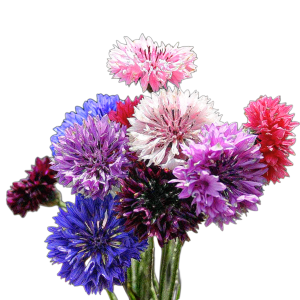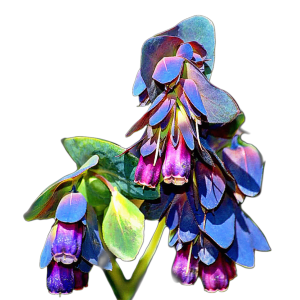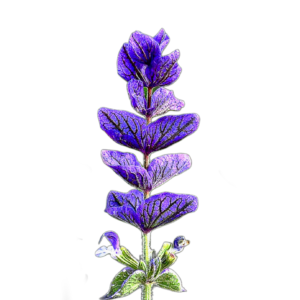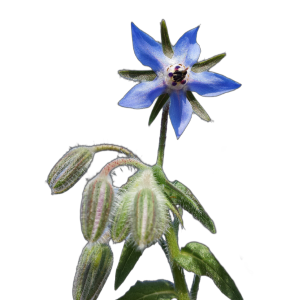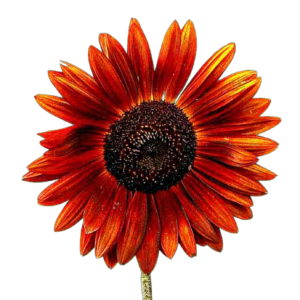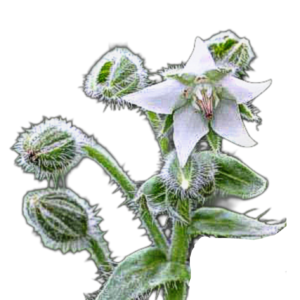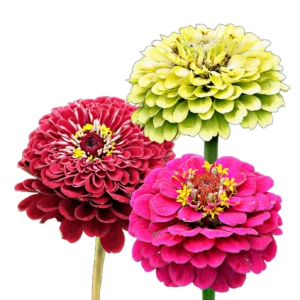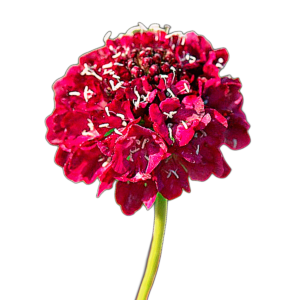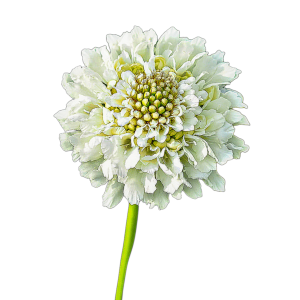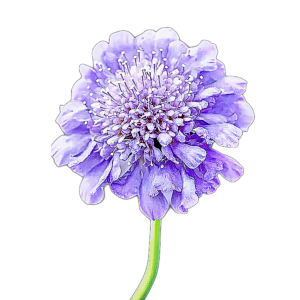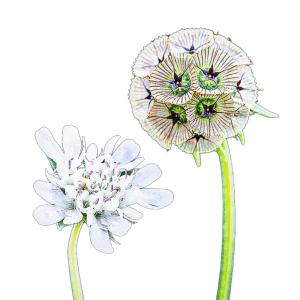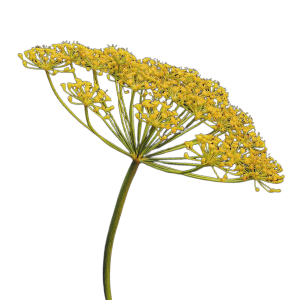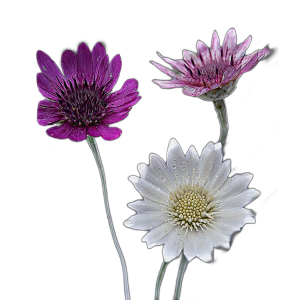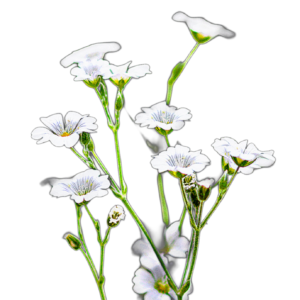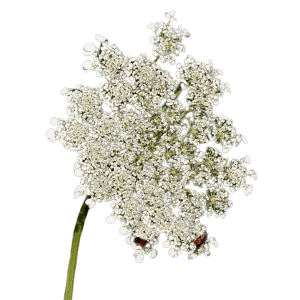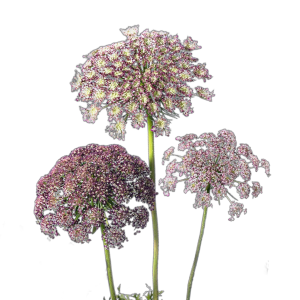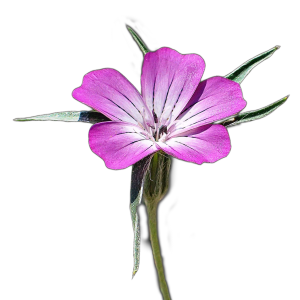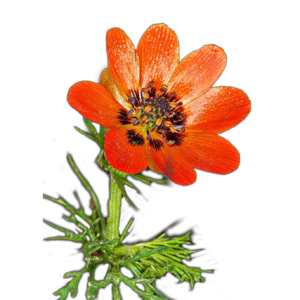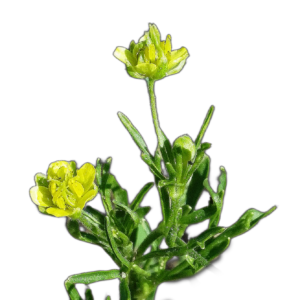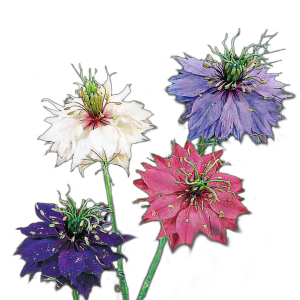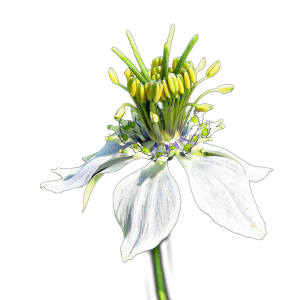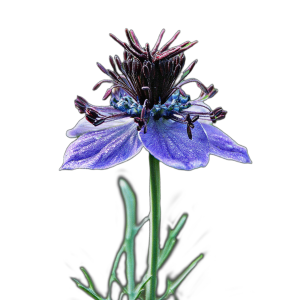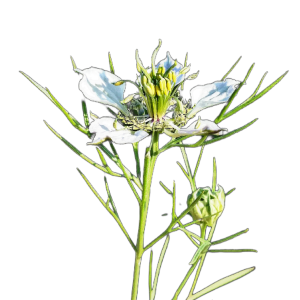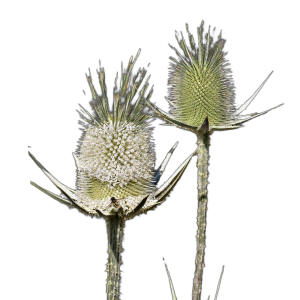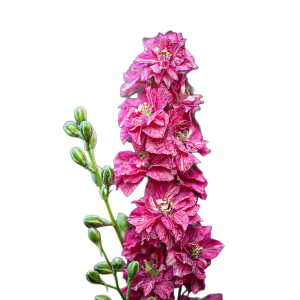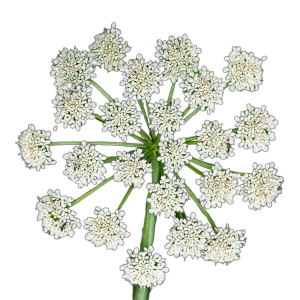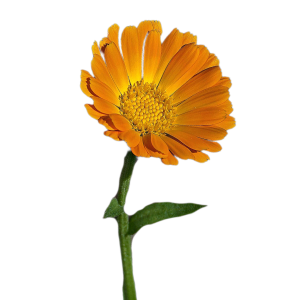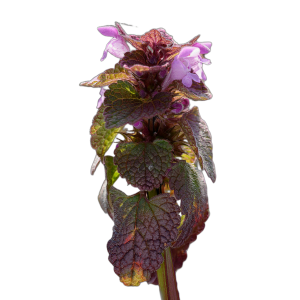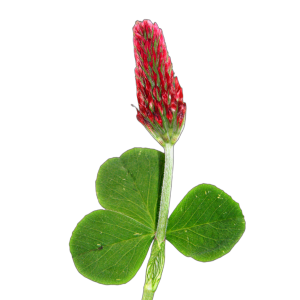“Csillagos ördögszem (Scabiosa stellata) 0,5g, ~20 mag” a kosárba helyezve. Kosár
-
-
Add to basket
- Add to wishlistAdd to wishlist
- also for window box, annual, bee-keeper, native
Poppy (Papaver rhoeas) 1g, ~9000 seeds
- 875 Ft
- Who should be introduced to the most iconic wildflower, the reddish pearl of the wheat fields? Fortunately, wildflowers, including poppies (Papaver rhoeas), are making a comeback in gardens these days and are slowly losing their weed status, as their early flowering makes them a very important food source for many of our solitary bees. Properties: other names: poppies, stinking poppies, poppies, gooseberries, dandelion flowers, blood poppies, wild poppies Latin name: Papaver rhoeas family...
Add to wishlistAdd to wishlist -
Add to basket
-
-
Add to basket
- Add to wishlistAdd to wishlist
- annual, biennial
Iceland Poppy (Papaver nudicaule) 0,25g, ~2000 seeds
- 875 Ft
- Contrary to its name, the Icelandic poppy (Papaver nudicaule) is not native to Iceland, but to the northernmost part of the world. It is a relative of our poppy, which flowers in the same year when sown in early spring and in the following year when sown later, so it can be considered a cold-tolerant annual/biennial. In Scandinavian mythology it has been associated as a symbol of sleep, while in other cultures it has been associated with peace and prosperity. It blooms later than the field poppy, so it...
Add to wishlistAdd to wishlist -
Add to basket
-
-
Add to basket
- Add to wishlistAdd to wishlist
- also in a window box, annuals
Honey Flower (Lobularia maritima) 0,5g, ~500 seeds
- 875 Ft
- The honey flower (Lobularia maritima), also known as the fragrant ternye or coastal aster, is native to the Mediterranean and has long been a popular ornamental plant worldwide. The origin of its name comes from the Latin word 'lobulus', referring to the plant's tiny pod-like fruit, but from its other name (Alyssum maritima) the word Alyssum means 'lack of madness', because it was once used to treat rabies. Nowadays it is less used in this field, but in return...
Add to wishlistAdd to wishlist -
Add to basket
-
-
Add to basket
- Add to wishlistAdd to wishlist
- also for window box, annual, bee-keeper, native
Poppy colour mix (Papaver rhoeas "Shirley Single Mix") 1g, ~9000 seeds
- 875 Ft
- Who should be introduced to the most iconic wildflower, the reddish pearl of the wheat fields? Fortunately, wildflowers, including poppies (Papaver rhoeas), are making a comeback in gardens these days and are slowly losing their weed status, as their early flowering makes them a very important food source for many of our solitary bees. This mixed poppy colour mix consists mainly of pink flowers, but other colours may also be available. It has a really light, soft and graceful look...
Add to wishlistAdd to wishlist -
Add to basket
-
-
Add to basket
- Add to wishlistAdd to wishlist
- annual
Salt flower (Limonium sinuatum) 0,5g, ~175 seeds
- 875 Ft
- Saltwort (Limonium sinuatum) is a native plant of the Mediterranean and Central Asia. It is a close relative of the Hungarian/Swedish saltwort (Limonium gmelinii). Its name comes from the Greek word 'leimōn', meaning meadow, referring to its natural habitat. Although often called sea lavender, it is not actually related to either lavender or rosemary. Saltbush has been used in floriculture for centuries, especially in dried flower arrangements, as its petals retain their bright colour...
Add to wishlistAdd to wishlist -
Add to basket
-
-
Add to basket
- Add to wishlistAdd to wishlist
- annual, beekeeping
Garden Poppy (Papaver somniferum "Lauren's Grape") 0,25g, ~800 seeds
- 875 Ft
- Our favourite poppy is a close relative of the garden poppy (Papaver somniferum), of which this beautiful variety, 'Lauren's Grape', is a dark purple cultivar. After opening, it forms large round poppy clusters, similar to the common poppy, which are great in dry flower bouquets. It's a very elegant flower, easy to grow and sure to wow the neighbours :) The garden poppy is originally native to the Mediterranean, but is now...
Add to wishlistAdd to wishlist -
Add to basket
-
-
Add to basket
- Add to wishlistAdd to wishlist
- annual, beekeeping
Garden Poppy (Papaver somniferum "Danish Flag") 0,25g, ~1000 seeds
- 875 Ft
- A close relative of our favourite poppy is the garden poppy (Papaver somniferum), of which this red-and-white variety, the 'Danish Flag', is a breeding variety named after the Danish flag for its colours. After opening, it forms large round poppy tubers, similar to the common poppy, which are excellent in dry flower bouquets. It's a gorgeous flower, easy to grow and sure to wow the neighbours :) The garden poppy...
Add to wishlistAdd to wishlist -
Add to basket
-
-
Add to basket
- Add to wishlistAdd to wishlist
- also for window box, annual, bee-keeper, native
Cornflower (Centaurea cyanus "wild") 2g, ~420 seeds
- 875 Ft
- The cornflower (Centaurea cyanus) is one of our best known and most loved wild flowers, along with the poppy. Loved by pollinators, it flowers for a relatively long time in the garden. It is a medicinal herb, its flowers are edible, it used to be used to make dye, but it is also excellent for tea, which also gives it a beautiful colour. Early spring sowing with early flowering is an important time for pollinators, but it can also be sown in the autumn, in which case it will have bushier growth in spring/early summer. This...
Add to wishlistAdd to wishlist -
Add to basket
-
-
Add to basket
- Add to wishlistAdd to wishlist
- also for window box, annual, bee-keeper, native
Cornflower - black (Centaurea cyanus "Black Boy") 1g, ~220 seeds
- 875 Ft
- The cornflower (Centaurea cyanus) is one of our best known and most loved wild flowers, along with the poppy. Loved by pollinators, it flowers for a relatively long time in the garden. It is a medicinal herb, its flowers are edible, it used to be used to make dye, but it is also excellent for tea, which also gives it a beautiful colour. Early spring sowing with early flowering is an important time for pollinators, but it can also be sown in the autumn, in which case it will have bushier growth in spring/early summer. This...
Add to wishlistAdd to wishlist -
Add to basket
-
-
Add to basket
- Add to wishlistAdd to wishlist
- also for window box, annual, bee-keeper, native
Cornflower - pink (Centaurea cyanus "Red Ball") 1g, ~220 seeds
- 875 Ft
- The cornflower (Centaurea cyanus) is one of our best known and most loved wild flowers, along with the poppy. Loved by pollinators, it flowers for a relatively long time in the garden. It is a medicinal herb, its flowers are edible, it used to be used to make dye, but it is also excellent for tea, which also gives it a beautiful colour. Early spring sowing with early flowering is an important time for pollinators, but it can also be sown in the autumn, in which case it will have bushier growth in spring/early summer. This...
Add to wishlistAdd to wishlist -
Add to basket
-
-
Add to basket
- Add to wishlistAdd to wishlist
- also for window box, annual, bee-keeper, native
Cornflower - pink colour mix (Centaurea cyanus "Classic romantic") 1g, ~220 seeds
- 875 Ft
- The cornflower (Centaurea cyanus) is one of our best known and most loved wild flowers, along with the poppy. Loved by pollinators, it flowers for a relatively long time in the garden. It is a medicinal herb, its flowers are edible, it used to be used to make dye, but it is also excellent for tea, which also gives it a beautiful colour. Early spring sowing with early flowering is an important time for pollinators, but it can also be sown in the autumn, in which case it will have bushier growth in spring/early summer. This...
Add to wishlistAdd to wishlist -
Add to basket
-
-
Add to basket
- Add to wishlistAdd to wishlist
- also for window box, annual, bee-keeper, native
Cornflower colour mix (Centaurea cyanus "Double Mix") 2g, ~440 seeds
- 875 Ft
- The cornflower (Centaurea cyanus) is one of our best known and most loved wild flowers, along with the poppy. Loved by pollinators, it flowers for a relatively long time in the garden. It is a medicinal herb, its flowers are edible, it used to be used to make dye, but it is also excellent for tea, which also gives it a beautiful colour. Early spring sowing with early flowering is an important time for pollinators, but it can also be sown in the autumn, in which case it will have bushier growth in spring/early summer. This...
Add to wishlistAdd to wishlist -
Add to basket
-
-
Add to basket
- Add to wishlistAdd to wishlist
- annual, herb, beekeeper, native
Chamomile (Matricaria chamomilla) 1g, ~12000 seeds
- 875 Ft
- Chamomile, also known as medicinal chamomile, is our best-known and most versatile herb. It can be made into a tea for colds, used as a poultice for inflamed eyes, and as an antiseptic and anti-inflammatory. It is a common ingredient in cosmetics, soaps and shower gels. Its tea has a calming effect and helps you fall asleep. In England, it is also used as an ingredient in craft beers, where not only the flower but the whole plant is added to the beer. As an annual flower, it quickly adds a lovely splash of colour to your garden. When harvested, it...
Add to wishlistAdd to wishlist -
Add to basket
-
-
Add to basket
- Add to wishlistAdd to wishlist
- 10/10 pollinator factor, also for window box, annual, bee-feeder
Lily of the valley (Cerinthe major "Purpurascens) 1g, ~20 seeds
- 875 Ft
- Cerinthe major is a native European flower, the cultivated form of which is this purple, "Purpurascens" colour variation. We also have the wild freckle-leaved Cerinthe minor, which has very interestingly mottled leaves, so you can recognise it from a distance. A close relative of this native species is this European annual species, but while the Hungarian species has yellow flowers, the 'Purpurascens' species...
Add to wishlistAdd to wishlist -
Add to basket
-
-
Add to basket
- Add to wishlistAdd to wishlist
- annual
Red-leaved sage (Salvia horminum "Blue Monday") 1g, ~350 seeds
- 875 Ft
- The sage (Salvia horminum) is a special kind of sage originally from the Mediterranean. Unlike other sage species, it is an annual and does not display its flowers but its colourful leaves, which in the case of 'Blue Monday' are purple. A very easy to grow annual, it is the perfect space filler for open spring bulbs, but can also be used as cut flowers in bouquets. If you keep the flowers/stems cut, they can decorate your garden all summer long, or they can be used as a...
Add to wishlistAdd to wishlist -
Add to basket
-
-
Add to basket
- Add to wishlistAdd to wishlist
- 10/10 pollinator factor, also for window boxes, annual, edible flower, bee-feeder
Borage (Borago officinalis) 2g, ~90 seeds
- 875 Ft
- Borage (Borago officinalis) is a cucumber-scented, hairy-looking annual plant from the Mediterranean. One of the best pollinator flowers in Europe, it attracts all insect groups. Research has shown that its nectar can be replenished in 5 minutes, providing an almost constant supply for hungry little pollinators, which is why it is so popular around borer branches. In particular, it is home to many species of bumblebee, just like the native Hungarian borage species...
Add to wishlistAdd to wishlist -
Add to basket
-
-
Add to basket
- Add to wishlistAdd to wishlist
- 10/10 pollinator factor, annual, butterfly favourite
Ornamental Sunflower (Helianthus annuus "Velvet Queen") 2g, ~80 seeds
- 875 Ft
- The 'Velvet Queen' ornamental sunflower (Helianthus anuus 'Velvet Queen') is a unique ornamental sunflower variety with deep red petals. The sunflower originated in North America, where it has been cultivated by indigenous peoples for over 3,000 years, not only for food but also for medicinal purposes. The oil pressed from sunflower seeds is rich in unsaturated fatty acids, antioxidants and vitamin E, which are beneficial for the cardiovascular and immune systems. A...
Add to wishlistAdd to wishlist -
Add to basket
-
-
Add to basket
- Add to wishlistAdd to wishlist
- 10/10 pollinator factor, annual, butterfly favourite
Umbelliferous verbena (Verbena bonariensis) 0,25g, ~1000 seeds
- 875 Ft
- The umbrella vervain (Verbena bonariensis) is enjoying a renaissance and has been introduced to the range because of the new Butterfly Lure 2.0 mix, as it is an irresistible nectar source for adult butterflies. Its long flowering period from mid-summer to autumn makes it the perfect choice. Historically, it was first grown as an ornamental in England in 1726 after James and William Sherard obtained its seeds from a dried specimen in Buenos Aires, and its popularity has continued ever since....
Add to wishlistAdd to wishlist -
Add to basket
-
-
Add to basket
- Add to wishlistAdd to wishlist
- 10/10 pollinator factor, also for window boxes, annual, edible flower, bee-feeder
White borage (Borago officinalis "Alba") 0,5g, ~20 seeds
- 875 Ft
- Borage (Borago officinalis) is a cucumber-scented, hairy-looking annual plant from the Mediterranean. It is a white variety of the wild blue colour. One of the best pollinator flowers in Europe, it attracts all insect groups. Research has shown that it can replenish its nectar in 5 minutes, providing an almost constant supply for hungry little pollinators, which is why it is so popular around boreholes. In particular, many...
Add to wishlistAdd to wishlist -
Add to basket
-
-
Add to basket
- Add to wishlistAdd to wishlist
- 10/10 pollinator, annual, bee-feeder
Milk thistle (Silybum marianum) 10 g, ~350 seeds
- 875 Ft
- The marjoram (Silybum marianum) is a medicinal plant native to the Mediterranean. Its thistle-like flowers are an excellent source of nectar in the summer months, while birds are welcome visitors in the winter months. It is easily distinguished from thistles mainly by its marbled leaves. Historically, marijuana was used in folk medicine mainly for its liver-protective properties; the active ingredient in the plant, silymarin, contributes to liver cell regeneration. The ancient Greeks and Romans...
Add to wishlistAdd to wishlist -
Add to basket
-
-
Add to basket
- Add to wishlistAdd to wishlist
- 10/10 pollinator factor, annual, butterfly favourite
Butterfly Flower colour mix (Cosmos bipinnatus "Mix") 2g, ~300 seeds
- 875 Ft
- The butterfly blossom (Cosmos bipinnatus) was introduced because of the new Butterfly Lure 2.0 and Mama's Garden seed mix, as it is an irresistible nectar source for adult butterflies and flowers in the year of sowing, unlike many native species. It originated in Mexico, where local people planted it as an ornamental in gardens and the flowers were used on religious festivals. It was introduced to Europe in the 18th century, where it quickly became popular...
Add to wishlistAdd to wishlist -
Add to basket
-
- Out of StockRead more
- Add to wishlistAdd to wishlist
- 10/10 pollinator factor, annual, butterfly favourite
Gorgeous copper flower colour mix (Zinnia elegans "Dahlia") 2g, ~250 seeds
- 875 Ft
- The magnificent copperflower (Zinnia elegans) was added to the range because of the new Butterfly Lure 2.0 and Mama's Garden seed mix, as it is an irresistible nectar source for adult butterflies and sedges and flowers in the year of sowing, unlike many native species. Originally from Mexico, it has a long tradition in Hungarian gardens. It was introduced to Europe in the 18th century, where it quickly became popular in gardens for its easy care and...
Add to wishlistAdd to wishlist -
-
- Out of StockRead more
- Add to wishlistAdd to wishlist
- 10/10 pollinator, annual, bee-feeder
Safflower (Carthamus tinctorius) 10 g, ~200 seeds
- 875 Ft
- Although it is not a native species, safflower (Carthamus tinctorius) can play a very important and useful role in small gardens for pollinators and birds. In summer, it is a favourite of pollinators, while in the winter months its seeds can be an important food source for many bird species (hence its inclusion in the Bird Lure Seed Mix). Historically, safflower has been cultivated for over 4000 years and has been used in many...
Add to wishlistAdd to wishlist -
-
-
Add to basket
- Add to wishlistAdd to wishlist
- 10/10 pollinator, annual, bee-feeder
Cretan snake lily (Echium creticum) 2g, ~650 seeds
- 875 Ft
- The Cretan snake-flower (Echium creticum) is a wildflower from Crete, which, like our terrapin snake-flower, is known for its incredible nectar production. While our teriyas are biennial species, so they flower the year after sowing, Cretan snakeroot is annual, so it is ornamental the year it is sown and a valuable food source for pollinators. It is a member of the borage family and, like its relatives, Cretan snake-eye attract many pollinators, especially in the...
Add to wishlistAdd to wishlist -
Add to basket
-
- Out of StockRead more
- Add to wishlistAdd to wishlist
- 10/10 pollinator, annual, butterfly favourite, bee-feeder, native
Devil's eye (Scabiosa atropurpurea "Fire King") 0,3g, ~45 seeds
- 875 Ft
- The devil's-eye (Scabiosa atropurpurea) is a native European flower, closely related to the buttercup and pale devil's-eye (Scabiosa ochroleuca and Scabiosa columbaria), which are also native to Europe. It produces much larger flowers, up to 5 cm in diameter, and can grow up to 100 cm tall. The devil's eye 'Fire King' is an annual species, but overwinters as a seedling. Its stems can be supported on bushy, windy...
Add to wishlistAdd to wishlist -
-
-
Add to basket
- Add to wishlistAdd to wishlist
- 10/10 pollinator, annual, butterfly favourite, bee-feeder, native
Scabiosa atropurpurea "Snowmaiden" 0,3g, ~45 seeds
- 875 Ft
- The devil's-eye (Scabiosa atropurpurea) is a native European flower, closely related to the buttercup and pale devil's-eye (Scabiosa ochroleuca and Scabiosa columbaria), which are also native to Europe. It produces much larger flowers, up to 5 cm in diameter, and can grow up to 100 cm tall. The Snowmaiden devil's-eye is an annual species, but overwinters as a seedling. Its stems can be supported on a bush, in a windy spot...
Add to wishlistAdd to wishlist -
Add to basket
-
-
Add to basket
- Add to wishlistAdd to wishlist
- 10/10 pollinator, annual, butterfly favourite, bee-feeder, native
Scabiosa atropurpurea "Oxford Blue" 0,3g, ~45 seeds
- 875 Ft
- The devil's-eye (Scabiosa atropurpurea) is a native European flower, closely related to the buttercup and pale devil's-eye (Scabiosa ochroleuca and Scabiosa columbaria), which are also native to Europe. It produces much larger flowers, up to 5 cm in diameter, and can grow up to 100 cm tall. The Oxford Blue devil's eye is an annual species, but will overwinter as a seedling. Its stems can be supported on bare stems, in windy...
Add to wishlistAdd to wishlist -
Add to basket
-
-
Add to basket
- Add to wishlistAdd to wishlist
- 10/10 pollinator, annual, butterfly favourite, bee-feeder, native
Devil's eye (Scabiosa atropurpurea "Black Knight") 0,3g, ~45 seeds
- 875 Ft
- The devil's-eye (Scabiosa atropurpurea) is a native European flower, closely related to the buttercup and pale devil's-eye (Scabiosa ochroleuca and Scabiosa columbaria), which are also native to Europe. It produces much larger flowers, up to 5 cm in diameter, and can grow up to 100 cm tall. Devil's Eye Black Knight is an annual species, but overwinters as a seedling. Its stems can be supported on bare stems, in windy...
Add to wishlistAdd to wishlist -
Add to basket
-
-
Add to basket
- Add to wishlistAdd to wishlist
- 10/10 pollinator, annual, butterfly favourite, bee-feeder, native
Starry devil's eye (Scabiosa stellata) 0,5g, ~20 seeds
- 875 Ft
- The starry devil's-eye (Scabiosa stellata) is a native European wildflower, whose dried seed pods can make beautiful elements in bouquets. This is the speciality of this species, but it is also very useful in the garden when in flower, attracting, like other species of devil's eye, a large number of pollinators, bees and butterflies. You can also cut off the open flower heads to prolong flowering, but be sure to leave them to ripen to seed, as they have a beautiful seed coat....
Add to wishlistAdd to wishlist -
Add to basket
-
-
Add to basket
- Add to wishlistAdd to wishlist
- annual, herbaceous, bee-keeper, native
Capers (Anethum graveolens) 5g, ~3250 seeds
- 875 Ft
- It's strange to describe such a well-known herb, but let's run with it. Without dill (Anethum graveolens), you can't have a proper pickled cucumber or pickle. Or pumpkin stew :) But if you look closely, it actually has quite pretty umbellate flowers, so it's not bad for decoration. But what makes them worth planting in a pollinator-friendly garden is that they are the food plant for one of our most beautiful butterflies, the swallowtail butterfly (the other umbelliferous...
Add to wishlistAdd to wishlist -
Add to basket
-
-
Add to basket
- Add to wishlistAdd to wishlist
- annual, beekeeping, native
Sweet iron flower colour mix (Xeranthemum annuum "Mix") 1g, ~1000 seeds
- 875 Ft
- Xeranthemum annuum is a beautiful annual native flower that is a great favourite of the various buttercup species. Its wild form is pale lilac in colour, in this gentrified colour mix you'll find purple-pink-white. Its dried form is often used in floriculture, often referred to as a strawflower. Because it can last forever when dried, it is also considered a symbol of eternity. It is easy to grow and will thrive in infertile sandy soils. Properties: other names: strawflower Latin...
Add to wishlistAdd to wishlist -
Add to basket
-
-
Add to basket
- Add to wishlistAdd to wishlist
- annual
Annual Gypsophila elegans "Covent Garden" 1g, ~500 seeds
- 875 Ft
- The annual gypsophila (Gypsohila elegans) or viburnum is a native European wildflower. The 'Covent Garden' variety has been bred. It is a relative of our native bugleflower. It differs in that while the wild variety of the bugleflower is a perennial, the annual bugleflower is an annual species. This flower is often used in floriculture as a beautiful ornament for bouquets, and is very often used as a bouquet enhancer. The more shoots you pinch off, the...
Add to wishlistAdd to wishlist -
Add to basket
-
-
Add to basket
- Add to wishlistAdd to wishlist
- annual, beekeeping, native
Wild carrot (Daucus carota) 1g, ~1450 seeds
- 875 Ft
- Our well-known wild flower, the wild cousin of our favourite carrot, is the wild carrot (Daucus carota). Not only pollinators, but other insects are also very fond of it, and you can often see boda boda and other small insects basking on its top. It is the food plant of one of our beautiful butterfly species, the caterpillar of the swallowtail butterfly. Queen Ann's lace is one of the names given to it for its lace-like flowers. Interestingly, the young, open-flowering...
Add to wishlistAdd to wishlist -
Add to basket
-
-
Add to basket
- Add to wishlistAdd to wishlist
- annual, beekeeping, native
Wild Purple Violet (Daucus carota "Dara") 0,1g, ~145 seeds
- 875 Ft
- Our well-known wild flower, the wild cousin of our favourite carrot, is the wild carrot (Daucus carota). Not only pollinators, but other insects are also very fond of it, and you can often see boda boda and other small insects basking on its top. It is also the food plant of one of our beautiful butterfly species, the caterpillar of the swallowtail butterfly. This breeding variety starts flowering in purple and becomes increasingly pinker in hue as it opens. It is a fantastically graceful looking plant...
Add to wishlistAdd to wishlist -
Add to basket
-
-
Add to basket
- Add to wishlistAdd to wishlist
- annual, beehive, cut flower
Toothpick grass (Ammi visnaga "Green Mist") 1 gram, ~1600 seeds
- 875 Ft
- Toothpick (Ammi visnaga) 'Green Mist' is a cultivar of the European wildflower from the Middle East and the Mediterranean, which is great for bouquets or even as a dry flower. It looks a bit like wild marigold, has a similar height, and in English toothpick is called "Queen Ann's lace", similar to wild marigold. The opening flower heads are greenish in hue and then turn white, forming almost hemispheres. A...
Add to wishlistAdd to wishlist -
Add to basket
-
-
Add to basket
- Add to wishlistAdd to wishlist
- annual, beekeeping, native
Conkoly (Agrostemma githago) 5g, ~550 seeds
- 875 Ft
- Seed concolor (Agrostemma githago) is an old annual wildflower, once considered a weed, and most often seen in cereal fields in the past. Unfortunately, it has now become so scarce throughout Europe due to the use of herbicides that it is now protected. Its seeds are quite poisonous and used to spoil the quality of flour when mixed with it, so it had to be discarded and was disliked. It's also beautiful, pink, easy to grow and drought tolerant,...
Add to wishlistAdd to wishlist -
Add to basket
-
-
Add to basket
- Add to wishlistAdd to wishlist
- annual, beekeeping, native
Summer herb (Adonis aestivalis) 1g, ~100 seeds
- 875 Ft
- The summer meadow-herb (Adonis aestivalis) is a native Hungarian wildflower, which, like the poppy, cornflower and larkspur, is most often found on the edges of wheat fields. Unfortunately, this orange-reddish beauty is rarely seen nowadays, as it has become quite scarce in nature thanks to herbicides. According to Greek mythology, the genus's Latin name was given by Aphrodite, who turned her lover Adonis into a red flower after her death, so that...
Add to wishlistAdd to wishlist -
Add to basket
-
-
Add to basket
- Add to wishlistAdd to wishlist
- annual, beekeeping, native
Buttercup (Ranunculus arvensis) 1g, ~180 seeds
- 875 Ft
- Buttercup (Ranunculus arvensis) is a native Hungarian wildflower, which, like poppies, cornflowers and larkspur, is most often found on the edges of wheat fields. Unfortunately, this yellowish-petalled beauty is rarely seen nowadays, as it has become quite scarce in nature thanks to herbicides. Unlike the other buttercups, the seed buttercup is an annual species, which is why it does not spread very widely. Its spring and early summer flowering is a beautiful, lush, yellow...
Add to wishlistAdd to wishlist -
Add to basket
-
-
Add to basket
- Add to wishlistAdd to wishlist
- annual, beekeeping
Wood mallow (Malva sylvestris "Zebrina") 0,5g, ~100 seeds (Copy)
- 875 Ft
- The forest mallow "Zebrina" (Malva sylvestris "Zebrina") is a cultivar of the forest mallow (Malva sylvestris), which is also native to our country. The forest mallow (Malva sylvestris) is our perennial wildflower, whose pollen is very popular with many bee species. Sometimes you can see bees drowning in the pollen of mallow :) A delicacy known as pap cheese. In ancient times, its leaves were used to make stew. The whole plant is edible and medicinal, and the flowers are used to make tea.
Add to wishlistAdd to wishlist -
Add to basket
-
-
Add to basket
- Add to wishlistAdd to wishlist
- also for window boxes, annuals, herbs, medicinal plants, bee-keepers
Borzaskata (Nigella damascena "Miss Jekyll blue") 1g, ~425 seeds
- 875 Ft
- Badger's catnip (Nigella damascena) is a flower from the Mediterranean that is often planted as an ornamental in gardens. It is a close relative of the field ladysweet (Nigella arvensis), also native to Hungary, also known as candelilla, and of the garden ladysweet (Nigella sativa), used as a herb and medicinal plant, and the Spanish ladysweet (Nigella hispanica), not yet well known in Hungary but often planted elsewhere.
Add to wishlistAdd to wishlist -
Add to basket
-
-
Add to basket
- Add to wishlistAdd to wishlist
- also for window boxes, annuals, herbs, medicinal plants, bee-keepers
Borzaskata (Nigella damascena "Persian Jewels") 1g, ~425 seeds
- 875 Ft
- Badger's catnip (Nigella damascena) is a flower from the Mediterranean that is often planted as an ornamental in gardens. It is a close relative of the field ladysweet (Nigella arvensis), also native to Hungary, also known as candelilla, and of the garden ladysweet (Nigella sativa), used as a herb and medicinal plant, and the Spanish ladysweet (Nigella hispanica), not yet well known in Hungary but often planted elsewhere.
Add to wishlistAdd to wishlist -
Add to basket
-
-
Add to basket
- Add to wishlistAdd to wishlist
- also for window boxes, annuals, herbs, medicinal plants, bee-keepers
Garden Ladybird/Black Fennel (Nigella sativa) seed
- 875 Ft
- The garden marigold (Nigella sativa) is an annual plant native to the Mediterranean and the Middle East, the seed of which is the spice known as black cumin, perhaps best known in this country from the tops of Turkish and Middle Eastern pastries. It tastes a bit like onion and smells like pepper and oregano. Its relative is the common garden marigold (Nigella damascena), the field ladybird (Nigella arvensis), which is also native to Hungary, and the...
Add to wishlistAdd to wishlist -
Add to basket
-
-
Add to basket
- Add to wishlistAdd to wishlist
- also for window boxes, annuals, herbs, medicinal plants, bee-keepers
Spanish Ladybird (Nigella hispanica) 1g, ~900 seeds
- 875 Ft
- The Spanish ladybird (Nigella hispanica) is a wild flower native to Spain, closely related to the common garden ladybird (Nigella damascena), the field ladybird (Nigella arvensis), also native to Hungary, and the garden ladybird (Nigella sativa), also used as a herb and medicinal plant. Like the other Nigellas, it is a super annual plant that is very easy to grow and sows itself year after year in our gardens. Its seed coat is also...
Add to wishlistAdd to wishlist -
Add to basket
-
-
Add to basket
- Add to wishlistAdd to wishlist
- also for window box, annual, herb, medicinal, bee-keeper, native
Field ladysweet (Nigella arvensis) 1g, ~340 seeds
- 875 Ft
- The field ladybird (Nigella arvensis), also known as candelilla, is a native Hungarian wildflower, closely related to the garden ladybird (Nigella sativa), which is used as a herb and medicinal plant, the common skunk catkin (Nigella damascena), which is also often planted in gardens, and the Spanish ladybird (Nigella hispanica), which is not yet well known in Hungary but is often planted elsewhere. In Hungary, it has often been used as a substitute for the garden marigold, also known as black caraway, as a spice and medicinal plant....
Add to wishlistAdd to wishlist -
Add to basket
-
-
Add to basket
- Add to wishlistAdd to wishlist
- annual, herbaceous, biennial, butterfly, bee-feeder, native
Christmas tree (Dipsacus laciniatus) 1g, ~330 seeds
- 875 Ft
- The Christmas tree (Dipsacus laciniatus) is a large, native Hungarian wildflower, whose blossom-like flowers are most commonly known as dry flowers. The leaves are coalesced around the stem to form a collar/well in which water collects, making it a favourite watering hole for birds (hence the name). Pollinators are also keen consumers of its nectar, and it is particularly attractive to bumblebees. From Christmas in the woods to Christmas in the woods, the colour of the flower...
Add to wishlistAdd to wishlist -
Add to basket
-
-
Add to basket
- Add to wishlistAdd to wishlist
- annual, herbaceous, biennial, butterfly, bee-feeder, native
Christmas tree (Dipsacus sylvestris/fullonum) 0,5g, ~325 seeds
- 875 Ft
- Dipsacus fullonum (Dipsacus fullonum) is a large, native Hungarian wildflower, whose spike-like flowers are most commonly known as dry flowers. Pollinators are also keen consumers of its nectar, and it is particularly attractive to bumblebees. It can be distinguished from the hawk's-foot Christmas by the colour of its flowers when in bloom: the hawk's-foot Christmas is white, while the woodland Christmas has purple flowers. One of the subspecies is also called weaver's Christmas, because it was used in the old days to make weavers' linen,...
Add to wishlistAdd to wishlist -
Add to basket
-
-
Add to basket
- Add to wishlistAdd to wishlist
- annual, beekeeping, native
Field Magpie (Consolida regalis) 1g, ~1000 seeds
- 875 Ft
- The field spurge (Consolida regalis) is one of our best-known wild flowers, along with the poppy and cornflower, which used to colour wheat fields purple. Unfortunately, thanks to herbicides, we see it less and less in the wild, although it is also very popular with pollinators such as bees and duck-tailed sedge. It flowers almost all summer, very useful for pollinators. In the Middle Ages, the magpie's foot was planted as a protection against witches...
Add to wishlistAdd to wishlist -
Add to basket
-
-
Add to basket
- Add to wishlistAdd to wishlist
- annual, beekeeping, native
Garden larkspur (Consolida ajacis "Carmine King") 0,5g, ~200 seeds
- 875 Ft
- Garden larkspur (Consolida ajacis) is a native European wildflower, the cultivated form of which is the 'Carmine King' variety. One of the easiest plants to grow, it is a successful annual variety for both autumn and spring sowing, and is easy to grow. This variety has a beautiful dark pink colour and although it has double flowers, pollinators will fit in. It flowers for a very long time, almost all summer, and earlier, even in May, if sown in autumn...
Add to wishlistAdd to wishlist -
Add to basket
-
-
Add to basket
- Add to wishlistAdd to wishlist
- annual, butterfly favourite, beekeeper, nitrogen bomb, native, green manure
Common vetch (Vicia villosa) 5g, ~160 seeds
- 875 Ft
- Our useful, nitrogen-fixing native plant is the hairy vetch (Vicia villosa). It is officially annual but often overwinters. Its abundant flowers provide pollinators with lots of nectar, and butterflies love it. It forms a large green mass and can overwhelm surrounding plants, so choose its location carefully. Characteristics: other names: vetch Latin name: Vicia villosa family: Fabaceae life span: annual (overwintering) flowering time: june-august size: 20-80 cm...
Add to wishlistAdd to wishlist -
Add to basket
-
-
Add to basket
- Add to wishlistAdd to wishlist
- balcony box, annual, herb, herbaceous plant, butterfly favourite, bee-keeper
Anise (Pimpinella anisum) 2g, ~680 seeds
- 875 Ft
- Aniseed (Pimpinella anisum) has been a known herb in Hungary for 2000 years, introduced by Roman soldiers from the Mediterranean. Anise seeds are obtained by harvesting the seeds, it is worth saving them and using them to flavour dishes. In addition to its spice and medicinal properties, it is an important food plant for the caterpillar of the swallowtail butterfly, which is a favourite munching food of the celery family (Apiaceae). Properties: other names: anise seed, fragrant anise, common anise, fennel, fennel, anise pimpinella Latin name: Pimpinella...
Add to wishlistAdd to wishlist -
Add to basket
-
-
Add to basket
- Add to wishlistAdd to wishlist
- also for window box, annual, edible flower, herb, beekeeper
Calendula officinalis 2g, ~280 seeds
- 875 Ft
- Calendula officinalis is an annual herb from the Mediterranean. It takes its name from the fact that its seeds resemble the bent curve of a nail. Its flowers are edible and, together with the borage, can be a beautiful garnish for salads. It blooms for months and should be planted next to tomatoes to keep pests away. Properties: other names: borage, gypsy flower, nightingale, nightingale's blossom, marigold, calendula, calendula, calendula, calendula officinalis, cat's claw, cat's claw, cold sore, buttercup, marigold Latin name: Calendula officinalis...
Add to wishlistAdd to wishlist -
Add to basket
-
- Out of StockRead more
- Add to wishlistAdd to wishlist
- 10/10 pollinator, annual, edible, herb, bee-feeder, native
Red Orris (Lamium purpureum) 0,1g, ~145 seeds
- 875 Ft
- The red orris (Lamium purpureum) is very valuable for pollinators, as its early spring flowering (if sown in autumn) provides plenty of food for the bumblebee queens that awaken from hibernation. Its fresh shoots are a reddish-reddish-reddish colour, which is how it can be distinguished from other orphan species and from the similar round-leaved bush-flower. Properties: other names: bee-weed, bee-flower, orphan buttercup Latin name: Lamium purpureum family: Lamiaceae life: annual flowering time: march-september size: 10-25 cm soil:...
Add to wishlistAdd to wishlist -
-
-
Add to basket
- Add to wishlistAdd to wishlist
- annual, biennial, beekeeping, nitrogen bomb, permanent grassland
Purple clover (Trifolium incarnatum) 10g, ~2650 seeds
- 875 Ft
- Purple clover (Trifolium incarnatum) is a very attractive testicle species of European origin. Its large crimson flowers can be very spectacular, even as part of a lawn border. It is a very good honey plant and, like red clover, is mainly visited by bumblebees and other longer-tongued bees. Purple loosestrife is an annual species, flowering in the same year if sown in early spring, but can also be sown from mid-summer to autumn, when it is expected to flower the following year. Characteristics: latin...
Add to wishlistAdd to wishlist -
Add to basket


